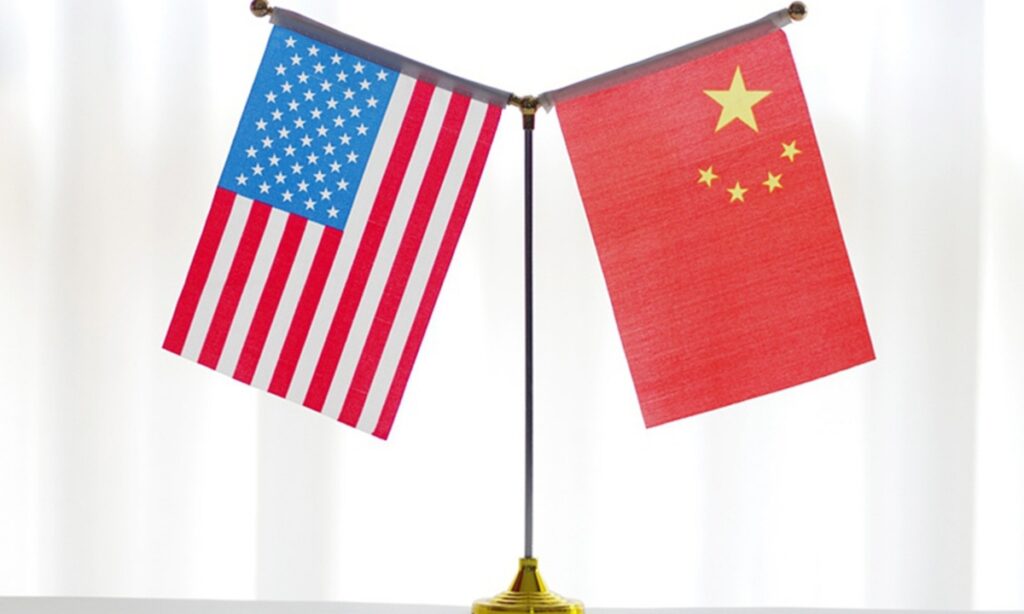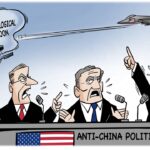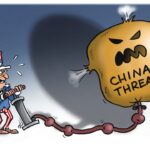US Treasury Secretary Janet Yellen said on Wednesday that she still hoped to visit China as it is important to improve communications with Chinese counterparts on economic issues, according to Reuters.
When holding talks with Yellen in Zurich, Switzerland, in mid-January, Chinese Vice Premier Liu He, also chief of the Chinese side for the China-US comprehensive economic dialogue, said Yellen is welcome to visit China at an appropriate time this year.
Of course, the more difficulties facing US-China relations, the more we need to insist on solving problems through communication and dialogue, and the more necessary it is for the two countries to maintain economic and trade exchanges.
But that was before a Chinese civilian airship has triggered the exaggerated imagination and hysterical reaction of anti-China forces in Washington.
The situation facing US-China relations today is unprecedented. The fact that a balloon incident has created great uncertainty across bilateral relationship, which had just showed some positive signs of moving toward rapprochement and dialogue, is sufficient to indicate how fraught US-China relations are and how radical US politicians can be toward China.
Yet, despite all the differences and conflict, it is crystal clear to both Beijing and Washington that it is vital to their countries to maintain a manageable relationship between China and the US. At a time when bilateral relationship is likely to face a new wave of political farce, officials from the Biden administration have the responsibility to calm things down to avoid escalating tensions.
As the ballast stone of China-US relations, economic and trade relations concern the well-being of the two peoples because the bilateral economic ties are built on the basis of great complementarities and mutual benefits. Trade in goods between the US and China just rose to a new record in 2022, hitting at $690.6 billion, exceeding the record set in 2018, according to data released on Tuesday from the US Commerce Department.
However, it is worth noting that there is an important change to US trade with China. China lost the position as the top supplier of US goods imports in 2022, the first time since 2019. US imports of goods from China totaled $538.8 billion last year, less than the $553 billion worth of goods it imported from the EU.
The US crackdown on trade with China has played a major role in the change. Since the Trump administration, the US government has delivered a series of blows to US-China trade, from trade war against China, to tariffs on over $300 billion worth of Chinese goods, bans on exports of high-tech products to China, and a “decoupling” push, which have contributed to continuing trade tensions.
When it comes to trade with China, Washington is still stubbornly following the strategy of “decoupling” itself from China by forcibly changing industrial and supply chains and containing China across high-tech sectors. It wants to ensure stable supplies of Chinese goods to alleviate its inflationary pressure while still hopes to squeeze Chinese products out of global markets. The contradictory goals are actually creating obstacles for the US to extricate itself from the current economic mire.
Now the US-China trade relationship has reached a critical point. Whether bilateral trade will trend up or down in the future is crucial to their relations. If the ballast stone of trade is deemed no longer stable, bilateral relations will be at more risks.
Indeed, from the White House to Wall Street, American elites understand that the US needs China’s help and a manageable relationship with China on many issues, especially when it comes to its own economic problems.
Therefore, it is essential for China and the US to maintain economic policy communication and coordination for the sake of stabilizing trade relations, which is conducive to not only the two countries, but also to the world economy under great downward pressure. It is also China’s hope to increase trade with the US. But first and foremost is that Washington needs to address China’s concerns and create the required atmosphere for economic and trade dialogue and exchanges between the two countries, especially after the balloon incident.
(Global Times)




